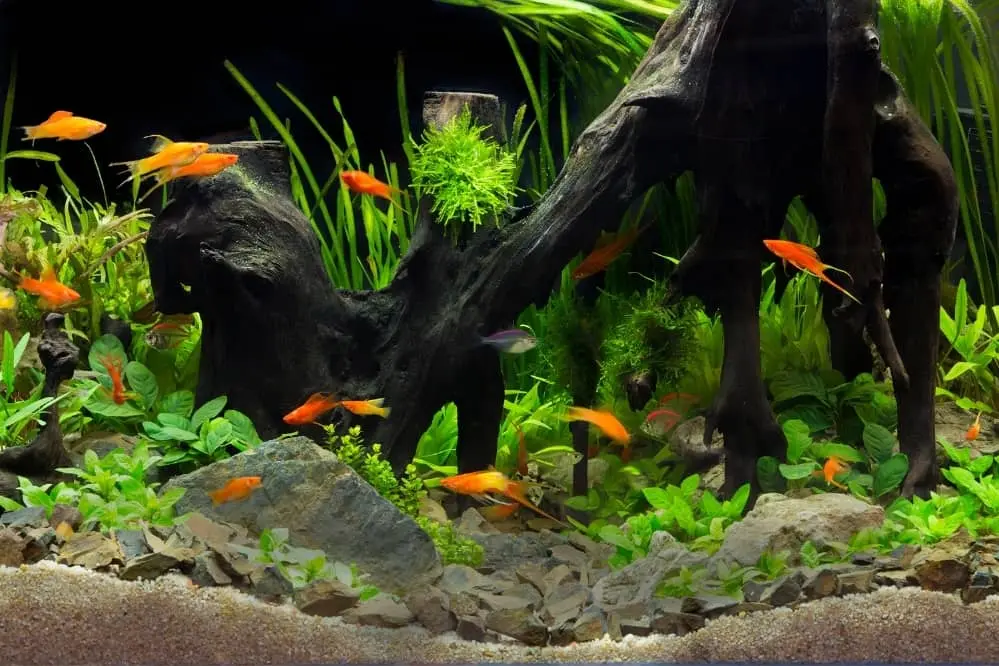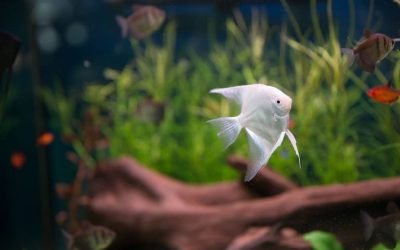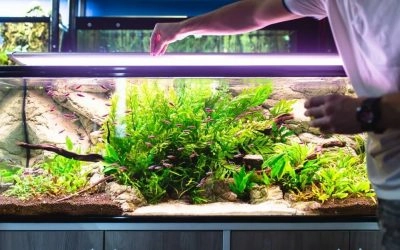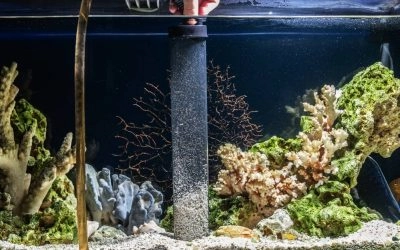Why Are My New Fish Not Eating?

Excitement of adding new fish in aquarium can instantly turn into worry if you see your new fish not eating. However, this is not an unusual behavior. New fish sometimes don’t eat food due to several different factors.
Listed below are the reasons why new fish don’t eat and remedy for it.
Let Them Settle First
Your aquarium is an unfamiliar environment for your new fish so let them settle first. Don’t offer food right away. Wait for couple of hours before you feed them. It is best if you fed them during the established feeding hours rather than random hour of the day. Don’t be too concerned if you don’t see your new fish eating food immediately because even after settling down, new fish can take 24 -48 hours before they start feeding.
Harassed By Other Fish
New fish may hide and not come out to eat if they are being harassed by other fish. You may consider removing the ‘bully’ fish but it will only be temporary solution because another fish will assume the aggressive fish role.
Some fish may not be aggressive but can be territorial. They may not swim around chasing and nipping new fish but will be aggressive if the new fish came too close to their defined boundaries.
So, when you buy new fish, consider few of these things
- is your tank large enough to accommodate new fish?
- buy new fish that are similar in size to the most aggressive or dominant fish
- consider adding more than one new fish to reduce the risk of getting harassed by other old fish
- research new fish compatibility with other aquarium fish
Sick / Injured
When you purchase new fish from pet store, observe their behavior and also any signs of injury and diseases. Sick or injured fish obviously won’t be likely to engage in feeding.
At pet store, ask your fish dealer to feed the fish. Only buy them, if they are eating.This is very important.
Don’t buy newly arrived fish. Those fish are stressed out enough due to long journey they had to endure, if they are transported again immediately to your aquarium, it will only aggravate their condition. Stress often impairs immune system ,therefore, your new fish will be more likely to get sick and won’t be eating.
Bad Acclimation
Your new fish may not be eating because it was not properly acclimatize to your home aquarium. Acclimatization is a slow process so if you just dump your new fish in aquarium, fish can go into shock. Why?
Because water chemistry and temperature of water in bag that your brought your fish is different from water in your aquarium. When fish gets suddenly introduced to a drastically varying water condition, it will stress them out. At best, it will make them sick and loose appetite. At worst, it will kill them.
Acclimatization does not protect your other fish in aquarium from disease and parasites that new fish may be carrying. It is always better to quarantine new fish in hospital tank for about 4 – 6 weeks. This will give you opportunity to observe any sign of disease in new fish and treat them accordingly.
Suitable Water Parameter
Incompatible water parameter is often the main culprit why your new fish is not eating.Before you buy your new fish, ask your fish dealer if they need any particular water condition. While fish can tolerate certain range of water chemistry and temperature, fish will be under immense stress if the water condition is not ideal. (Even slight difference in pH level can shock or kill fish)
Poor Water Quality
This is another main contributing factor why new fish will not eat. Poor water quality will not just stress new fish but also all the other fish in aquarium. Periodically check tank water parameter ( like ammonia, nitrite, pH, hardness etc) with test kit. Rise in ammonia level or presence of chlorine is a serious threat to your fish life.
Performing routine water change is a best way to maintain good water quality. It will remove nitrate,fish and plant waste, uneaten fish food and toxin from aquarium water. Make sure that replacing water is dechlorinated and has similar water chemistry as water in aquarium.
Wrong Food
Selecting food for fish that are bred in captivity is straightforward. First check at store if they are eating or not then simply feed them the same food they eat at pet store. Later on you can vary their diet.
Picking food for fish captured in wild can be bit tricky. Fish of same species can have different diet based on the location of their habitat. You may have to experiment with different food.
Fish will not eat food if it does not like the taste or texture of food. They might take in but it will spit out. But don’t be too concerned because fish can be trained to eat unfamiliar food – you just have to be little patient and persistent.
Remember that even if you picked right food for your new fish, if the size is wrong, it won’t eat eat because it can’t swallow the food. Don’t assume that large mouth fish can take in large size. They may also eat food in smaller bits.




0 Comments